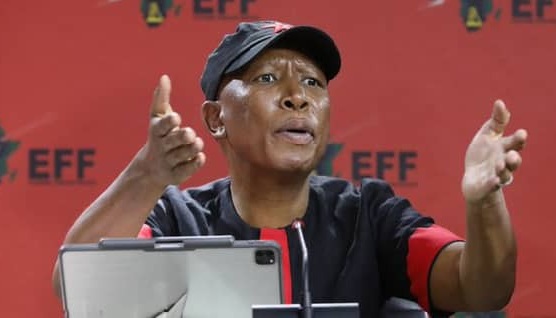The Economic Freedom Fighters (EFF) have accused South African media outlets of launching a concerted effort to discredit the party and its leadership in the lead-up to the 2024 national elections. In a strongly-worded statement, the EFF claimed that the media’s coverage of the party’s activities has crossed the line from scrutiny into a deliberate “smear campaign” aimed at undermining its influence and reputation.
The EFF’s statement condemned what it called “unrelenting attacks” on the party’s leadership, particularly focusing on its founder, Julius Malema, who faces ongoing legal challenges. “The media has become a willing tool of those seeking to maintain the status quo, and its relentless attacks on the EFF are nothing more than a political strategy aimed at undermining the party’s momentum as the elections draw closer,” the EFF stated.
The party, known for its radical stances on issues such as land expropriation without compensation, nationalization of strategic industries, and broad economic transformation, has gained prominence in South African politics, often presenting itself as a bold voice challenging entrenched inequalities. However, the EFF’s rise has not been without controversy; the party and its leaders have often faced criticism for their populist positions and confrontational style.
In response, media outlets have defended their coverage, emphasizing that their role is to hold all political leaders accountable, regardless of party affiliation. A spokesperson for one of the media organizations named in the EFF’s statement stated, “The role of the media is to hold political leaders accountable. Our reporting is grounded in journalistic integrity and serves the public interest.”
Political analysts note that the EFF’s accusations reflect the heightened tensions typical in election seasons, as parties vie for control of the narrative and seek to mobilize support. This tension underscores the complex relationship between South African political figures and the media, a dynamic often strained as elections approach.
As the 2024 elections near, the impact of the EFF’s claims remains uncertain. Whether these accusations will resonate with the EFF’s support base or add further strain to its relationship with mainstream political discourse is yet to be seen.






















